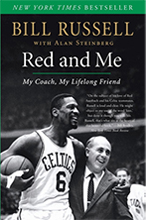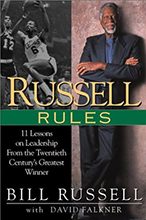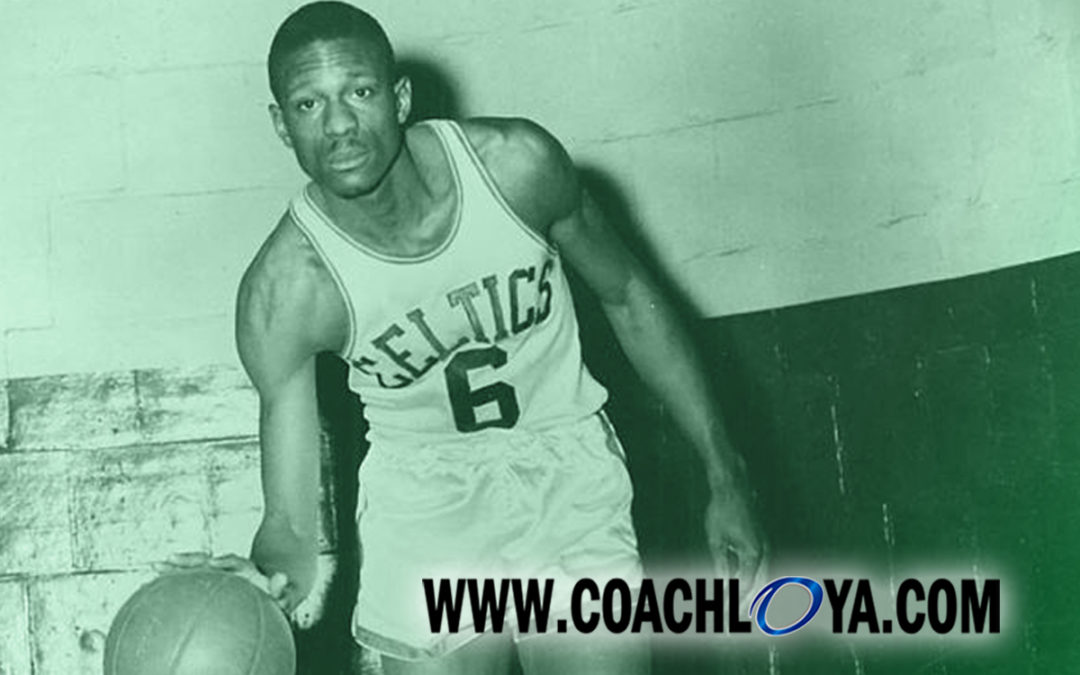I was saddened by Bill Russell’s recent passing. He was an inspiring figure whose example impacted countless lives. He was also the source of a good teammate insight that I hold incredibly dear.
On the basketball court, Russell’s accomplishments were plenty: five NBA most valuable player awards, 12 All-Star selections, an Olympic gold medal, a 55-game college winning streak, two NCAA championships, and 11 NBA titles.

 Russell co-authored two of my all-time favorite books, Red and Me and Russell Rules. Both books mention the Hall of Famer’s unique perspective on ego—a perspective that I’ve found to be shared by many good teammates.
Russell co-authored two of my all-time favorite books, Red and Me and Russell Rules. Both books mention the Hall of Famer’s unique perspective on ego—a perspective that I’ve found to be shared by many good teammates.
In Chapter Two of Russell Rules, Russell discusses a talk he gave about ego to the 1999 Boston Celtics, who were in the middle of a nine-game losing streak and not playing as a unit:
“I began by telling (the Celtics players) that despite that so much had been written about me being the most unselfish player, I was the most egotistical player they would ever meet. All kinds of nervous smiles were coming back at me from people who were not sure what was coming next. These smiles disappeared when I said, ‘Do you know the difference between your ego and mine? My ego is not a personal ego, it’s a team ego. My ego demands—for myself—the success of my team. My personal achievement became my team achievement.’”
Ego is your opinion of yourself, especially your feeling of worth in terms of your own importance and ability.
Being egotistical (excessively conceited, self-absorbed, or self-centered) is generally viewed as detrimental to team culture. But that isn’t necessarily the case with team members who have a “team ego.”
Personal egos come from statistics like points, rebounds, and assists. Team egos come from the final score.
Personal egos cause you to be reluctant to do work that you think is beneath you. Team egos compel you to do whatever is necessary for your team to succeed.
Personal egos start with “I.” Team egos start with “we.”
Some of the most impactful teammates I have ever encountered had a swagger rooted in their team ego. They projected brash confidence and took pride in their teams’ accomplishments without any allusion to their individual accomplishments.
How they carried themselves did not rub the other members of their teams the wrong way. In fact, their swagger inspired the other members to also embrace a team ego.
Sports Illustrated called Russell sports’ “greatest winner.”
But limiting the summation of Russell’s legacy to his on-court accomplishments would be a travesty. He championed social injustice throughout his life and used his platform to make the world a better place. His willingness to engage in causes that did not directly affect him sprung from his team ego.
Embracing your team ego will undoubtedly lead you to do the same.
As always…Good teammates care. Good teammates share. Good teammates listen. Go be a good teammate.





